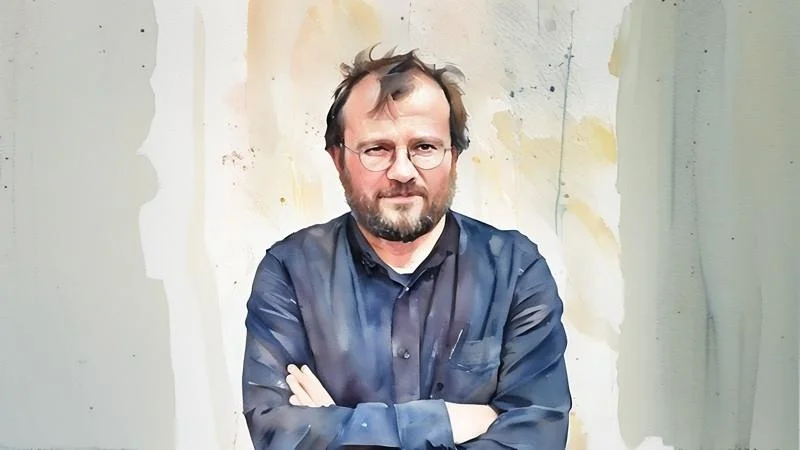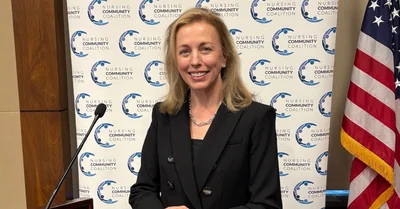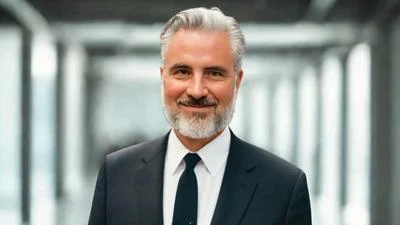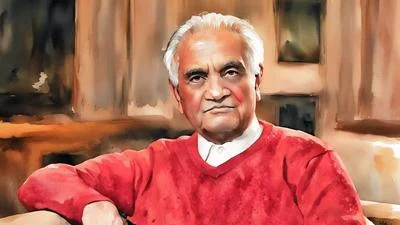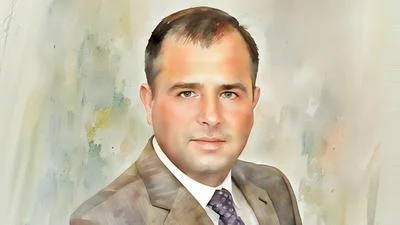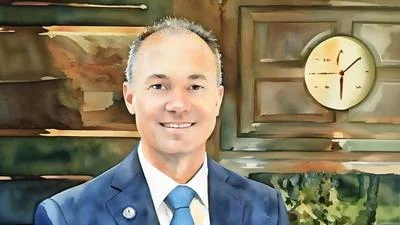Ukraine’s fight for survival against Russia includes trying to protect its religious traditions from the Kremlin’s anti-religious campaign, according to theologian Cyril Hovorun. He says the Putin regime is using the Russian Orthodox Church as a weapon of power and ideology.
Hovorun is an Ukrainian Orthodox priest and a scholar who has taught in seminaries and universities from Los Angeles to Stockholm to Rome. He once served within the Russian Orthodox Church and worked with Patriarch Kirill.
“I’m at home here in Ukraine–this is my home,” Hovorun says. “I try to witness what is happening to Ukraine in order to then explain Ukraine outside.” He says he visited the central mosque in Kyiv after it was struck in a Russian attack, leaving children dead and houses of worship destroyed. “Everyone is facing the same danger,” he says. “We just feel this brotherhood or sisterhood of religious people, regardless of what religion we belong to.”
Unity across faiths has become essential to survival for Ukrainians, according to Hovorun. “We really are blessed to have great cooperation between the communities, which are usually in the West not cooperating very well with each other, like Jewish and Muslim communities, for example,” he says. “Because everyone is facing the same challenge.”
Hovorun says Moscow is a large threat to every religious community. “We need to understand the Ukrainian case in this wider context of the instrumentalization of religion by the Kremlin.” Russia’s ideology of Russkiy Mir, or “Russian World,” cloaks imperial ambitions in religious language. “It’s the new communist ideology for Russia,” Hovorun says. “It’s an update and upgrade of the communist ideology, which sounds religious, but at the core is the same communist ideology. It looks like religion and it operates like a religion.”
Hovorun says that Patriarch Kirill of Moscow crafted the ideology by combining Soviet, monarchical, and medieval concepts, then sold it to Vladimir Putin. “You may consider this ideology as a sort of product, an intellectual product,” he says. “Kirill convinced Putin personally that ideology matters,” and then the Kremlin “bought this product”
According to Hovorun, Patriarch Kirill will use holy water and bless missiles and tanks, and then “promises soldiers places directly in heaven,” even after committing war crimes. “Those theologies that he produces are to support Putin’s war in Ukraine,” he says.
Hovorun says Ukrainians, however, are not deceived. “We completely understand this trick.” He says Ukrainians are “less naive” than Western societies and governments because “we’ve lived with the Russians for centuries.” For them, “it’s a matter of life and death–it’s not just an academic conversation.” He stresses that Ukraine values religious freedom but must balance it with national security. “There is no ideal solution,” he says, pointing to similar struggles in Estonia and across Europe.
Ukraine’s religious life flourishes with remarkable diversity, despite the challenges, according to Hovorun. “Ukraine is a super religious country. I think it’s one of the most religious societies in Europe,” he says. “We have Orthodox, Catholics, Greek Catholics, a sizable Jewish community, sizable Muslim communities, and evangelicals,” all of whom he says, “try to live in peace with one another.”
Hovorun says that diversity is why Russia targets faith communities so brutally in occupied areas. The brutality currently extends to evangelicals. “The number of evangelical communities in Donbass exceeded the number of Orthodox communities. It became really an evangelical area in Ukraine, and it was hit most heavily by the Russians,” he says.
The Russian plan there is to eliminate evangelicals. “They killed pastors, burned books, burned a Christian university, and burned Bibles because they were printed by Protestants.” According to Hovorun, this has forged deep solidarity. “We as Orthodox are so much in solidarity with our evangelical brothers and sisters because they suffer the same way as we suffer.”
All of Russia’s war aims against religions are masked by propaganda, according to Hovorun. “The Russian playbook is very simple. They project on others what they do themselves.” That means, “they persecute religion, they kill religion in their occupied areas, and they say Ukrainians do this.”
Hovorun’s concern is that the Russian narratives filter into American debates, including into the mainstream of news and religious personalities who side with Russia over Ukraine. “They try to drive a wedge and create a narrative that Ukraine is anti–religious freedom, when nothing could be further from the truth.”
